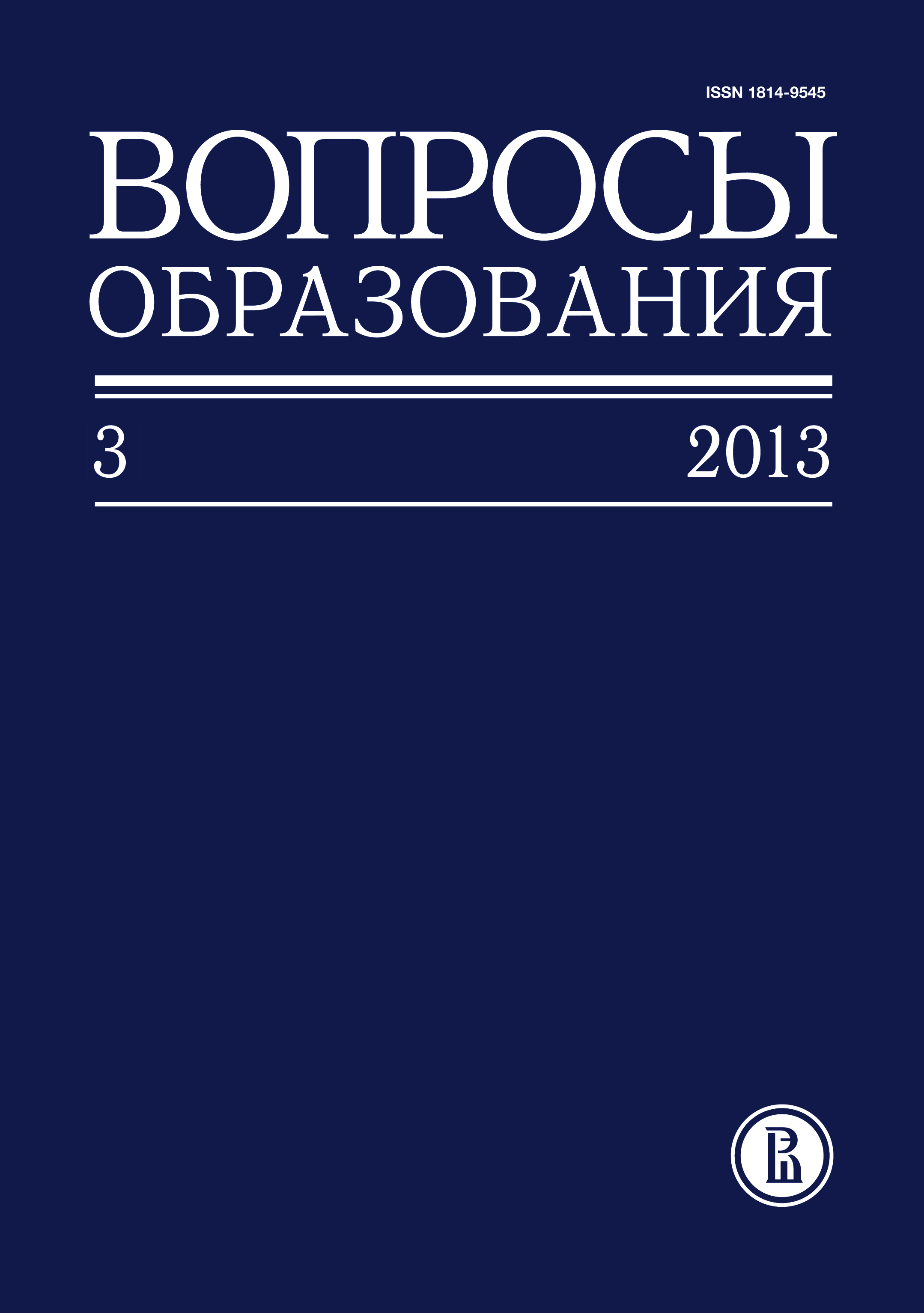Эффективный контракт в образовании. По данным статистики и Мониторинга экономики образования
Аннотация
Материал подготовлен по данным Института институциональных исследований НИУ ВШЭ и Центра статистики и мониторинга образования Института статистических исследований и экономики знаний НИУ ВШЭ
Угольнова Людмила Евгеньевна — заместитель начальника отдела по работе с данными Института институциональных исследований НИУ ВШЭ. Эл. адрес: lugolnova@hse.ru
Шугаль Николай Борисович — заместитель директора Центра статистики и мониторинга образования Института статистических исследований и экономики знаний НИУ ВШЭ. Эл. адрес: nschugal@hse.ru
На основе статистических показателей и данных опросов педагогов и руководителей образовательных учреждений рассматривается эффективность существующего контракта в образовании. Представлена информация об уровне и динамике изменения зарплаты педагогического персонала в образовательных учреждениях разного уровня в сравнении со средней зарплатой по экономике.
Исследуются трудовые стратегии и ожидания педагогов разных уровней образовательной системы. Выделены наиболее популярные у педагогов виды подработки, определен размер разрыва между реальным заработком и уровнем зарплаты, необходимым для сосредоточения на основной деятельности. Анализ оценки педагогами размера своего заработка по отношению к уровню зарплаты в аналогичных учреждениях показал, что переход в другое учебное заведение не увеличит их доход. Оценка педагогами уровня своей зарплаты в сравнении с уровнем в организациях других сфер экономики свидетельствует о том, что существующий контракт в образовании не обеспечивает конкурентоспособность положения педагога на рынке труда, при этом отмечается слабое желание педагогов сменить сферу деятельности.
Представлены данные об оценке руководителями образовательных учреждений профессионального уровня преподавательского состава, выявлены критерии, на основании которых педагоги оцениваются при приеме на работу и распределении стимулирующих выплат. Определены размер стимулирующих выплат и наиболее распространенные виды доплаты.
Установлено, что существующий размер заработка педагогов не соответствует в достаточной степени уровню, при котором руководитель образовательного учреждения может рассчитывать на полную отдачу педагога, а потребители образовательных услуг — на их высокое качество.








